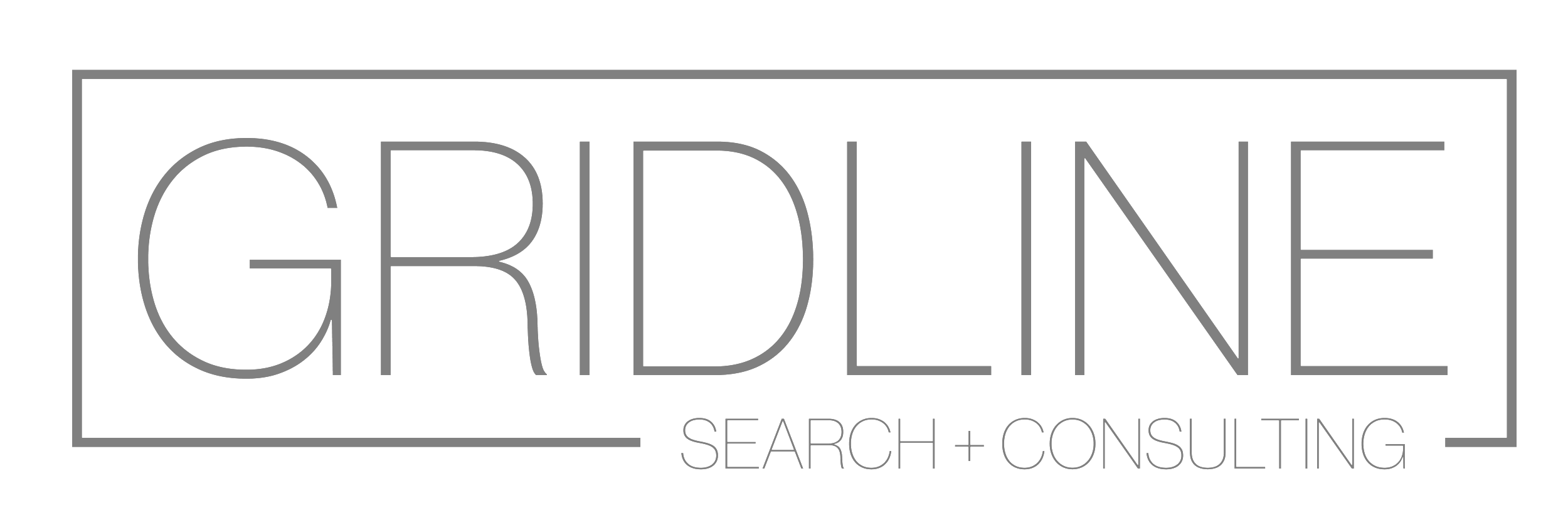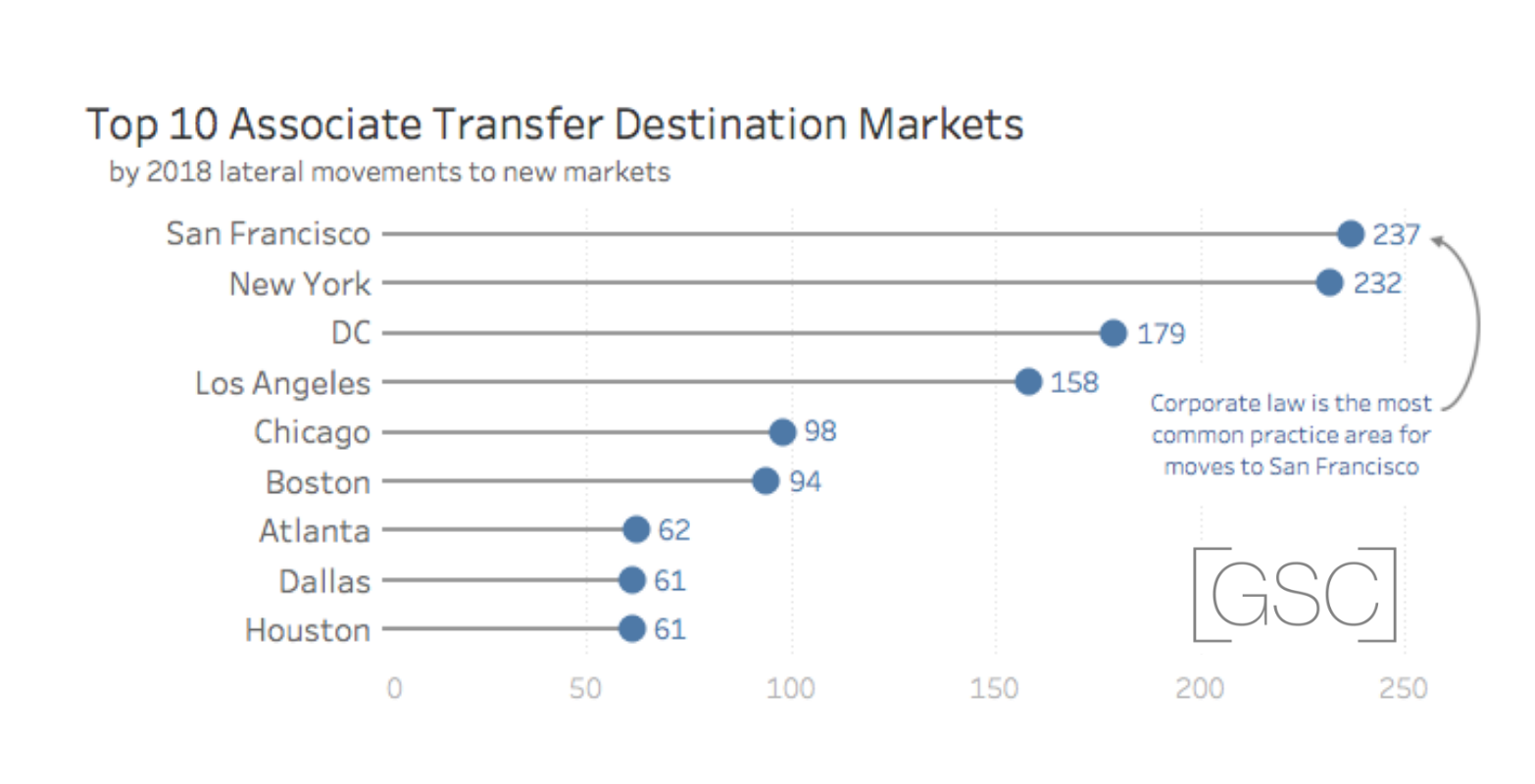"Destination Markets" for Law Firm Associates
I've written before about changing markets as a corporate associate. This article looks at the broader movement of law firm associates that have changed geographic markets and moved to new law firms, looking at data from 2018. Here are some findings regarding some of the key "destination markets" for associates last year:
Lateral data copyright 2018 Firm Prospects, LLC. All rights reserved. Used with permission. Not for redistribution. Graphic by DuelingData.
The Bay Area and New York lead the pack for destination markets, driven by high corporate needs. Attorneys that do some type of transactional work flock to the San Francisco Bay Area and New York City markets. Even though the Bay Area is generally a smaller legal market than NY and DC, the needs for corporate attorneys to service tech companies, their buyers, their targets and their financiers. This need will likely grow in 2019 (see here).
DC transfers were diverse in original location and practice. The DC market had 160 transfer associates in 2018, which excludes the number of associates coming to firms from judicial clerkships (significant in the DC market). These associates came from all over the country. This can partly be attributed to the fact that the DC bar has a much easier admission process for laterals than, for example, California. Practice areas were similarly diverse with DC drawing in associates to fill corporate, litigation, real estate, tax and IP needs, amongst others.
Boston's lateral associate needs were significant compared to the city size. Boston attracted about 100 new associates to the market last year. This is the 6th largest transfer destination market, even though the metropolitan area is only the 10th largest in the country. New firms along with active financial services and life sciences industries keep the needs for associate talent high, especially for corporate practice.
Expect the trend of lateral associate geographic movement to increase in numbers over the next few years for a few reasons:
Large firms will continue move into new markets (see Boston) and partner groups will continue to move as firms compete for books of business.
Some practice areas like tech transactions, real estate and data privacy are in such high-demand for trained talent that firm offices will have to look out of their geographic areas to find the talent.
The liberalization of state bar admission via adoption of the UBE will make it easier and easier for associates to make themselves marketable to a new firm in a new market.

